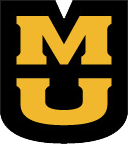Courses
Fall 2018
Art History and Archaeology
7490 Late Antique Art and Archaeology
Marcus Rautman, TTh 2:00- 3:15, Swallow 110
This course explores the physical setting and material culture of the Mediterranean world between the third and seventh centuries. Historical accounts often stress the disruption caused by the decline of Rome, yet the archaeological and visual evidence attests a time of creative prosperity in many parts of the late empire, especially the cities of the eastern empire. Working with a range of visual sources — artifacts of daily life, luxury arts, standing buildings, and excavated sites — offers a chance to revisit this transformative era and its wide-reaching cultural legacy.
English
8110 Forms: History of Hagiography
Johanna Kramer, M 1-3:30pm, Tate 101
This course traces the history of hagiography—arguably the most important literary/historical genre of the Middle Ages and definitely its most popular—from its beginnings in late antiquity to its prolific flourishing in the later medieval period and beyond. We will begin with pre-Christian, biblical martyrs, followed by the Christian martyr acts, semi-historical documents that describe the trials and deaths of Christians persecuted in the Roman Empire. We then trace the development of the genre with the spread of Christianity and its adaptation into the vernacular areas of Western Europe. The main focus of this course will be on medieval continental western Europe and the British Isles, but there is room to explore post-medieval and contemporary, including secular, hagiographies. While we will mostly concern ourselves with written texts, our investigation will include some non-verbal hagiographic forms (manuscript illuminations, images, architecture, cult objects, etc.). Practical course aims are to introduce students to the form and features of the genre of hagiography, as expressed in both textual and other sources, to theoretical approaches to saints' lives, and to the major research resources and tools available for the study of hagiography. Students will study the chronological and thematic development of saints' lives and the cult of saints with an eye towards learning how to gain historical, social, religious, political, and general cultural knowledge from reading these texts. Along the way, we will also explore topics relevant to a wide variety of interests and fields, such as gendered sanctity, sexuality and sainthood, the role of the body (both emphasized and denied) in the ideology of sainthood, the relationship between the body and the mind, various forms of spirituality and their historical dimensions, the relationship between genre and (religious) didactic goals, tradition and innovation of form, and hagiography as historiography.
7166 Shakespeare on Film
William Kerwin, MWF 11-11:50, Tate 102
This course will consider how Shakespeare has figured within the history of film. What happens when Shakespeare’s work moves from the dramatic theater to the movie theater? How does the meaning of the text change depending on the medium of expression? What are the opportunities and limitations of Shakespeare on film? What has film made possible for modern audiences of Shakespeare, and how has that evolved over recent decades? In this class we will work through those questions as we look at five plays by Shakespeare and thirteen or fourteen film versions of Shakespeare plays. We will study films representing the paradigms of ‘theatrical, realist, and filmic’ Shakespeare productions, we will consider Shakespeare translated to genres like the western and the musical, and we will look at the recent explosion of “internet Shakespeares.” We will engage in both close readings of the written texts and various strategies for considering the shift to film. Early in the course we will explore formal tools of film study, and students will learn and apply basic methods for shot analysis, using specific film terminology, and make an argument as to how a director’s choices in filming reflect her relationship to the meaning of the text. Later in the course we will attend to culturally-based adaptations of Shakespeare that move further from the point of origin in numerous ways, in general becoming less concerned with “fidelity” and more with creative adaptation. We will look at ‘global Shakespeare,’ and we will ask how contemporary films of Shakespeare explore issues of gender, sexuality, religion and ethnicity. Students will write a shot analysis, two short response papers, and a final long paper. There will be a midterm exam.
History
1540 England Before the Glorious Revolution
Lois Huneycutt, MWF 12:00-12:50, Middlebush 310
1570 Survey of Early Modern Europe, 1350-1650
John Frymire, TThu 9:30-10:45, Hill Hall 309
4605/7605 Early Modern Spain, 1450-1750
Kristy Wilson Bowers, TTh 11-12:15, Strickland 223
In this course, we begin with Fernando and Isabel, whose marriage in 1469 brought together the two principle territories of Castile and Aragon, leading to the beginnings of a “united” Spain. As we trace the political and social history of Spain through the next three centuries, we’ll also be examining the many myths surrounding Spanish history including topics such as the Columbus’ voyages, the Spanish Inquisition and the Black Legend.
Religious Studies
4630/7630-- Sanskrit I
Signe Cohen, MW 10-11:15, A & S 312A
This intensive course will cover the essentials of Sanskrit grammar in one semester and prepare students for further readings in Hindu and Buddhist Literature.
8005 Topics in Religious Studies: Yoga and Globalization
Daniel Cohen, M 3-5:30, A & S 312A
This class explores yoga both as an ancient Indian tradition and an example of the globalization of religious outlooks and spiritual practices. (may not have enough medieval content to be of interest, but including it just in case because

